LIKE A GRACEFUL CHAPTER
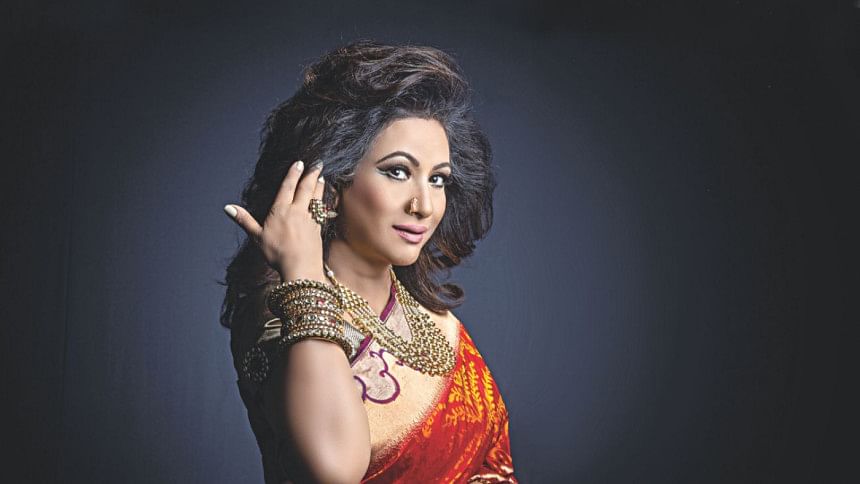
Rafi Hossain: We are elated to have Champa, the gorgeous and evergreen actor of Bangladeshi films with us for today's interview!
Champa: Thank you! I am also stoked that you remembered me so cordially. I even dressed up with a touch of fusion to present myself differently today (laughter).
Rafi: You look stunning! So, let us start with your stepping into the media scene. It took you comparatively longer than your elder sisters to appear on the silver screen. What was the reason behind this?
Champa: I never really saw myself becoming a film star in my early days. I would often go to the shooting spots to see the wondrous technology and mechanisms functioning all along. To see so many energetic people working with such efficiency was euphoric. Also my sisters were the hit actors of their times and watching them being surrounded by fans all the time had always been fascinating. Once in a shooting spot, a person came over to me and whispered – 'Sister, what do you stars normally eat?' (laughter). However, for a long time I somewhat preferred to live a trivial life with less spotlights shining. My father had always been encouraging. It was a little hurtful when some directors stated that my two sisters being actors, does not automatically prove that I can be an actor too. So, I took it as challenge and began to practice acting behind closed doors. None of my sisters had any clue that I was rehearsing scripts with the pillows as my dummy heroes (laughter). Now, when I look back to those days, I find it soothing that despite having no opportunity of academic training like current times, our enthusiasm allowed us to hold on to our spirits regardless of everything else. Soon enough, I was lucky to receive an offer from Abdullah Al Mamun. It was for a drama called Doob Shatar.
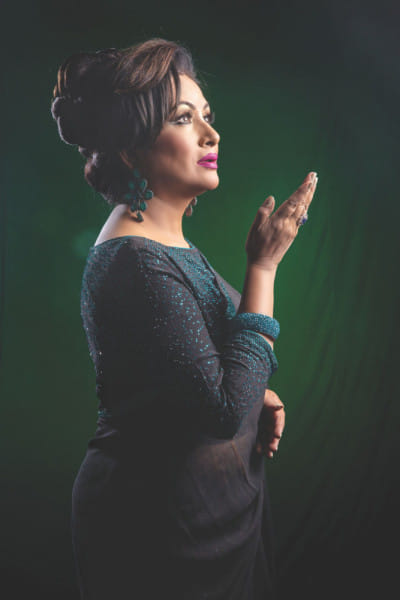
Rafi: Was it the very first offer that you received?
Champa: No, I had received a good number of film offers but I rejected those. Doob Shatar was one of my big breaks, after which I collected myself a strong pace. Later, I worked with prominent directors like Atiqul Hoque and Mustafa Monwar. I did Ekhane Nongor with Hanif Sanket, which was a huge success and many of its dialogues famously reverberated in the common peoples' lives for days. My sisters were astonished too; they would wonder when I became so savvy! I always admired the talent of Bobitaand Suchanda apa, but I never tried to imitate them. I wanted to make a name for myself with my uniqueness.
Rafi: And how did you make your silver screen debut?
Champa: I was already married with a daughter, when Suchanda apa approached with the offer for Tin Konna. The film had roles of three sisters. I had to persuade my husband a lot, but finally he agreed to let me act in the film. Suchanda apa actually convinced my husband that this would be my first and last film (laughter). Although it was my first time, I was not nervous or shaky at all. Actually seeing all my known people on the sets had given me an ease. Perhaps, I was yet to realize the significance of playing one of the lead roles at the time.
Rafi: You had already acted for TV productions. Did you find any difference while acting for big screens?
Champa: Yes, the two had been very different experiences. Artists get much lesser breathing-space in TV productions. Shooting for movies is far more extravagant with a lot of creative freedom and experimentation. Also, there are variations in the lighting systems and in the lenses being used. I learned a lot of it with time and experience.
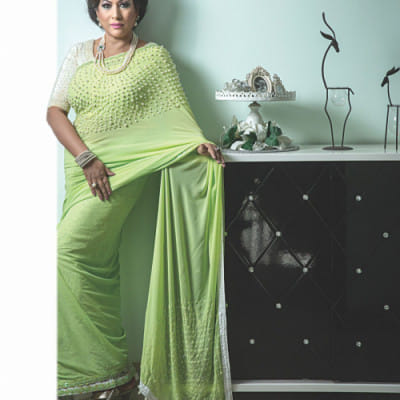
Rafi: Tell us about your memories with Zahir Raihan.
Champa: I am unlucky in the sense that I did not get the chance to work with Zahir Raihan. He had always been affectionate, he would often say – 'I want you in my films! Grow up already!'. He was extremely industrious and devoted to his work. He would study more and more, arrange discussion meetings with all the cast and crew before launching the shooting projects. These days, such dedication is hardly seen. Our industry would see better days if such true artists of the past were alive.
Rafi: You have been in the industry for such a long time. Have you never thought of directing films?
Champa: I did consider taking a shot with film direction once or twice. But I backed off because I felt that I needed to learn more about the science. The contemporary scenario has largely evolved and attained much more diverse colors. When I was at the peak of my acting career, I did not have enough time to try out directing. And now I think I would have to learn it all over again to match with the modern vibes. I would rather skip the challenge. I am satisfied with my identity as an actor, and I do not wish to risk the acceptance.
Rafi: You had been at the peak of your career for almost a decade. If I may ask, do you now feel any emptiness or miss those busy times?
Champa: Well, ups and downs are parts of every artistes' lives. Good times do not last forever for anybody. Many factors, like age and popularity, determine how prolonged the period of success will be. In my case, I would say I had been the victim of some dirty politics. Otherwise, I might have enjoyed a few more years in front of the lights and cameras. Also, it is difficult for female actors to stand their grounds when there is a definitive patriarchal dominance in the industry. Then there is a lack of creativity in our scripts, due to which only younger actors mostly get to play the lead roles. In Bollywood, I see Juhi Chawla, Madhuri Dixit and Tabu still playing key characters in some fantastic movies. But here, age becomes like a burden for actors; even if you have much more in yourself to give to the audience, you hardly get enough opportunity. But I do not really miss those times, because I am always occupied with my family and friends. It is true that perhaps in the lazy afternoons I still like to wonder if I could play in this film or play that role differently, since age and experience truly enable artists to rediscover themselves. But that is just about it.
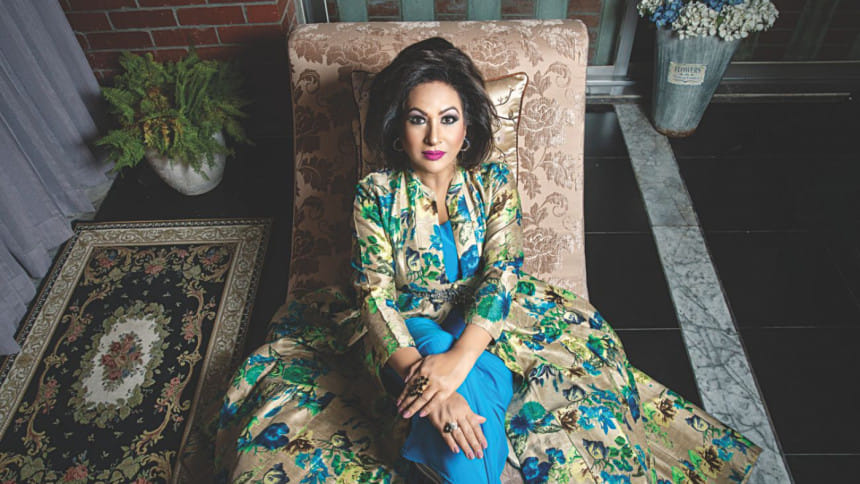
Rafi: But still, I would say that you and your sisters have been lucky to work with maestros like Zahir Raihan, Satyajit Ray and Buddhadeb Dasgupta. Can we hear bits of your experience of working in 'Lal Darja'?
Champa: Sure. But before that, I would like to talk about how I got engaged in Padma Nadir Majhi. There was a party in Bobita apa's residence, where I first met Gautam Ghosh. But I did not yet know him. I saw a thin, tall guy with long hair, staring at me without even blinking. I was wearing a miniskirt at the party, and I felt so uncomfortable that I asked Bobita apa who that man was. She said, 'That's renowned director Gautam Ghosh! He has been looking for a new heroine for his next film. Perhaps he has found something in you!' This made me even more nervous! Later we were introduced, and he requested me to invite him to my place because he had heard that I was a good chef (laughter)! He also added that I may wear a saree and not put any makeup. So, I followed. On the day of the invitation, I attended the door for the guests coming right from the kitchen, and so my face was covered with sweat. When I opened the door, Gautam held a pause for a long while and kept staring at my natural, sweaty face. He did not express anything at all about the film on that day. We all just ate together and chatted, and then he left, keeping me befuddled about what was going on in his mind. All curtains unveiled the next day when I received a phone call from him. He said I was perfect for his next film; I only needed to put on some weight. At that time, I had a glamorous image in the industry. Many advised me to not take Gautam's offer; they said playing such an impoverish, penniless character will ruin my career. But I told myself that I am much more than my beauty and glamour, and took the risk. This way I came closer to one the best directors of the Indian subcontinent. After the success of Padma Nadir Majhi, I got the offer from Buddhadeb Dasgupta. Bappi Lahiri was the music director of Lal Darja. He received a prestigious award for the film, and so he called me his 'lucky artist'. Buddhadeb da had a very forthright attitude. While elaborating my role in Lal Darja, he said that the character had to have very distinct facial expressions. It required me to pour down deep heartache through my gazing and lip curves. The film was based on a poetry, and it had many surrealistic aspects. He even halted the shooting for hours once because I was laughing aloud just before going to shoot a sad scene. He said, 'You have gone out of your character, go and stay alone for sometimes. Do not talk to anybody.' The strictness of such talented directors taught us some great lessons. After Lal Darja, Sandip Ray casted me in his Hindi film Target to play one of the lead roles with Om Puri. I had to learn to speak Hindi for that film. The consequences of Target brought me to meet legendary Indian actor Anupam Kher. He invited me to go to India and take the screen test for his next film Bhabna. Anupam ji was impressed with the screen test; he said the only issue he could find was in my Hindi speaking. But that could be erased with dubbing. So, everything was finalized. I was given the script as well. However, after some days he called me again and said that due to some internal dispute, preparations for the film had to be paused. The project never restarted. Then I worked with Tabu and Sharmila Tagore in Gautam Ghosh's Abar Aranye. My friendship with Tabu became so intimate that we would often gossip endlessly at nights and then fall asleep in the same bed. Tabu is a very down to earth person with no ego or arrogance. We are still in touch, and meet whenever I go to India.
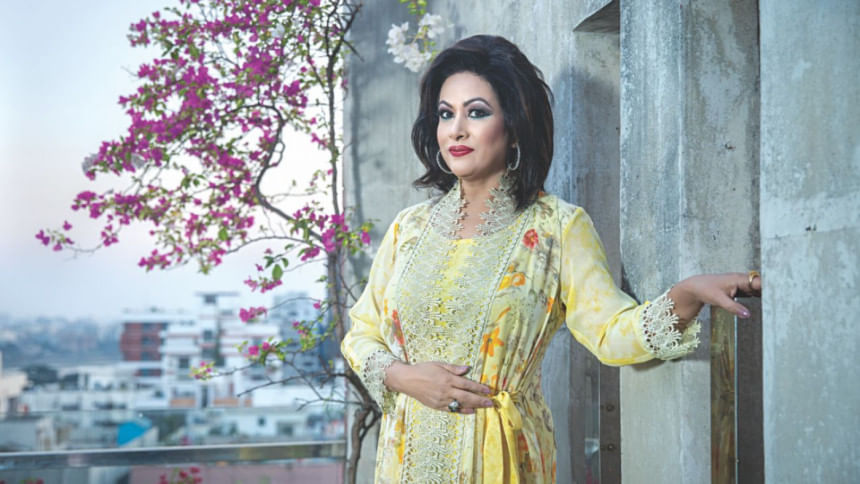
Rafi: That's wonderful. Now let us hear about your recent updates.
Champa: I am currently busy with a few projects. I am playing the role of a drug supplier in one of my next films. Another film that I am doing is called Safe Life. It is mainly about some hazards of our lives that we often see around us and how to overcome those.
Rafi: Moving on to a different discussion, it is evident that artists of your generation had a better grip when it came to the question of balancing their career and their family life. What, according to you, could have been the secret behind this?
Champa: I cannot say for everyone, but for me, it has always been sort of like a responsibility. I believed that both my family and my career are like two vital organs of my body. I could never overlook one for the sake of another. So, I always tried to be prepared and planned ahead. It came down to even briefing my helping-hand on what to cook for the next day and when to pick up my daughter from school. Even if I was in the middle of a shooting, I would call the nanny for timely updates. I still have those habits. To this very day I do not forget to check whether the stove is turned off or the door is locked before I go to bed. I kept my daughter with me 24/7 until she was admitted to school. I would take her to the shooting spots and check on her when I had a break. My daughter studied in an English medium school, and after that, she studied in Canada. But I never let her forget her roots under any circumstance. I think negligence is something that I genuinely never had in my character, and that has created all the difference.
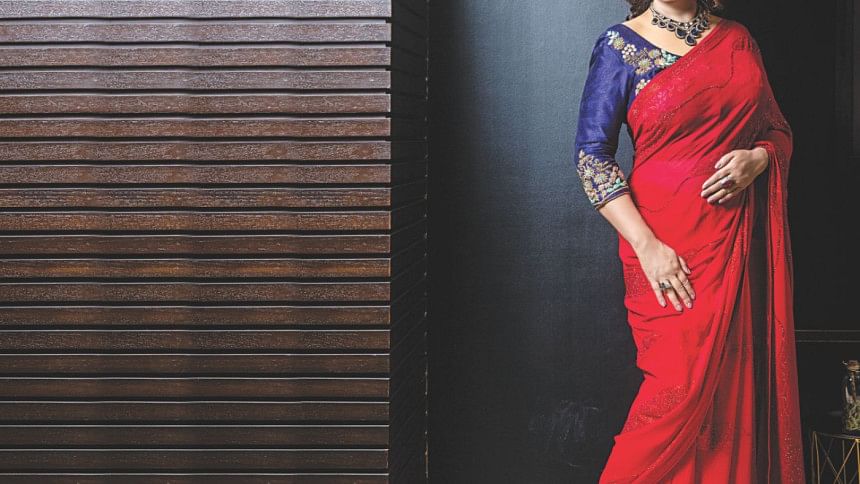
Rafi: Being a top tier actor of your time, how did you handle the media gossips and scandalous rumors?
Champa: I had been very cautious about this throughout my acting career. I never spent extra time with my co-actors or directors. I kept my professional life secluded so it could never create problems in my personal life. However, some newspapers still tried to play with my stardom and capitalized on it. I still remember a local magazine that once published an extremely misleading and fabricated article with my pictures for their cheap publicity. If it had not been for my mental strength, my career would have seen its decay far sooner. Also, my family had been very supportive in these cases. Once my mother-in-law saw one such libelous news and called me. I was hesitant because I was not sure how I could explain the whole thing. Then she said, 'I see you are in love with this actor. Very well, carry on!' And then she laughed and said, 'Listen Maa, when people are trying to drag you down by dishonest means, you should feel happy because you have achieved something that they could never achieve. Never pay attention to these frauds!' So, I can proudly say that I have been blessed with a wonderful family who have always been by my side.
Rafi: You have paired with many hit actors of your time. Let us hear your thoughts on this.
Champa: I have mostly been paired with Manna and Ilias Kanchan. I did a good number of films with Rubel as well. Working with them has been fascinating. I worked with Razzak bhai once in the film Bishbriksha. But Alamgir bhai was the one who first gave me the lead role of a heroine in his film Nishpap. It was a superhit film and I have heard that the film is still popular among the loyal audience.
Rafi: Tell us, what is the one thing that you admire in Suchanda and Bobita, not as a sister but as actors?
Champa: (Laughter) I think Suchanda apa has beautiful expressive eyes. It is a marvelous advantage for any actor. Also I find her similar to Suchitra Sen, whom I also admire. Then, in Bobita apa, I would say, I find a unique elegance. She has that innate richness in her charisma that can blow any audience's minds.
Rafi: It was wonderful to have you with us! What will be your special message to our readers?
Champa: Once in Kolkata, I saw a mango tree right by a street. It might have grown without any tenure, because I saw many random people from the locality eating the fruit of the tree without any quarrel or discord. This little example of peaceful coexistence took a special place in my mind. I would request everybody to practice benevolence in every step of their lives. And also, please serve our nation with honesty and treasure our country with true fervor.

 For all latest news, follow The Daily Star's Google News channel.
For all latest news, follow The Daily Star's Google News channel. 




Comments